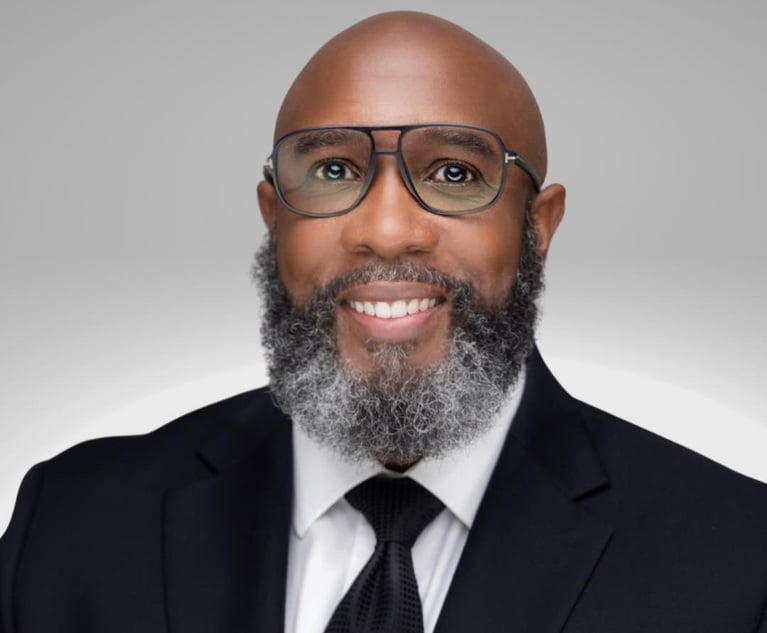Jeffrey Shapiro on Leading Giant Mergers and Crusading Against 'Rambo' Lawyers
Jeffrey B. Shapiro's 40 years in the courtroom have taught him how to get a jury to sympathize with big corporations — typically branded the bad guys in litigation. And it's a lesson he's brought to his firm Arnstein & Lehr, which has focused on "getting the culture right" since joining forces with Saul Ewing in one of the largest law firm mergers in the U.S.
December 27, 2018 at 04:00 PM
6 minute read
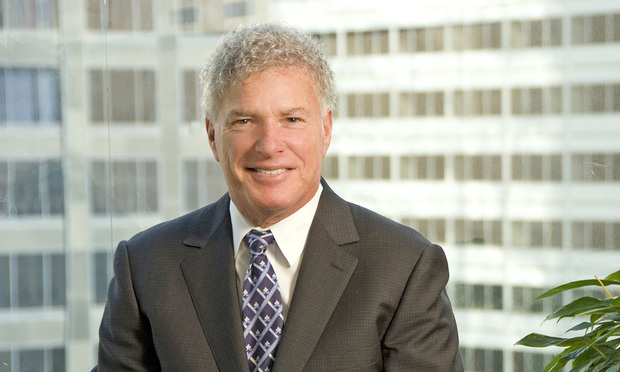 Jeffrey Shapiro. Courtesy photo
Jeffrey Shapiro. Courtesy photo
When Philadelphia law firm Saul Ewing combined with Chicago's century-old Arnstein & Lehr to create a 375-strong legal powerhouse, there were endless numbers, cases and logistics to worry about, but the biggest concern for Jeffrey B. Shapiro was something many disregarded — clashing personalities.
“The numbers don't matter if the people don't get along,” said Shapiro, managing partner at Saul, Ewing, Arnstein & Lehr's Miami office,
Shapiro was a key architect in what turned out to be one of 2017's biggest domestic mergers, predominantly driven by Saul Ewing's desire to crack the South Florida market.
The way Shapiro sees it, mergers don't have to be messy and business doesn't have to be cut throat. As former chair of Arnstein & Lehr's executive committee, he focused on “getting the culture right,” adopting best practices in a field prone to ego bumps and personality conflicts.
“You can have endless meetings and not get anything done. But if you have meetings where people communicate and have topics and issues to resolve, that makes a big difference,” he said.
Shapiro and his team were careful about it, spending more than a year going back-and-forth between partners, having lawyers who shared practice areas across the country get together and swap notes, making sure there were no client conflicts.
Throughout that process, according to Shapiro, his firm stuck to a few simple but rigid rules: “Follow best practices, no yelling, no screaming, no throwing paper clips.”
“You've only got one chance to do it right,” he said. ”We really take to heart treating our lawyers fairly.”
The way Shapiro sees it, lawyers are bound to disagree, but if they can have the space to be heard by their higher-ups, that can do wonders to tackle bad blood.
Related story: Saul Ewing Increases 2017 Revenue 43 Percent After Big Merger
'Rambo Mentality'
Civility is a priority at Saul, Ewing, Arnstein & Lehr because Shapiro has had it with “scorched-earth” lawyering.
“There's this kind of 'Rambo' mentality among some lawyers,” Shapiro said. “When you see lawyer advertisements that say, 'Hire the aggressive lawyer,' what does that even mean?”
It wasn't always that way, according to Shapiro, who's noticed less professionalism and more yelling, screaming and bad behavior in South Florida courtrooms recently.
“Most lawyers are very good and are very civil, but we have an increasing number that are not, and it demeans the system,” Shapiro said. ”How does the public respect us if we don't respect ourselves?”
 Barbara Prager. Courtesy photo.
Barbara Prager. Courtesy photo.More attorney profile stories:
Legal Aid Superhero Barbara Prager on Hanging up Her Cape
Zealous Defense
When construction businesses, car manufacturers and medical companies face claims that products have malfunctioned or don't work as they should, Shapiro's phone rings.
From allegedly cancerous molds to potentially addictive medications, Shapiro's defended it all. And in 40 years, he's rarely been short of work.
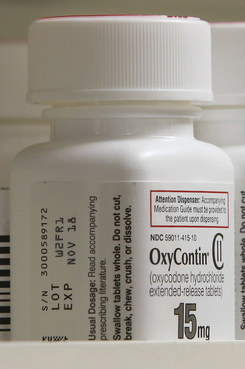 Medication. Photo: George Frey/Bloomberg.
Medication. Photo: George Frey/Bloomberg.“Even if 99.9 percent of the devices and drugs are successful and there's no problems, it doesn't take much to have a litany of lawsuits and claims just based upon the sheer numbers,” he said.
“People buy products now, and they're so plastered with warnings that what happens is a desensitization. We're not reading anything,” the attorney continued.
Because of that, Shapiro's clients have to be careful about how much they warn.
“Obviously, warnings have to be adequate, and in the case of drugs and medical devices that's prescribed by the Food and Drug Administration,” he said. “But there's also an overkill piece, where it's like saying, 'Be careful with that knife. It's sharp.'”
The trick to defending a products liability case is explaining the concept of individual responsibility, according to Shapiro, who stresses that a company can't always responsible for what people choose to do with its products.
“If you're dealing with a plaintiff who's not taken responsibility for their own conduct, they in a sense contributed to their own injury,” Shapiro said. “They abused a device, they took too much medication, they drove too fast, they ignored the warnings that were on the box.”
Shapiro's career has centered on encouraging juries to lend a sympathetic ear to large corporations — often branded “the bad guys” in litigation, rightly or wrongly.
“There are some who just won't accept that a corporation could be wearing a white hat,” he said. “So there may be one strike against at least some corporations. But most juries are willing to give corporations a fair chance to explain themselves.”
Shapiro once defended a drug company from a $2 million verdict after a consumer, a teenage girl with Down syndrome, died of an overdose. It was a heartbreaking case, and according to Shapiro, there was nothing wrong with the medication.
The teenager also had bronchopneumonia, a strain of pneumonia that constricts airways and causes inflammation of the lungs. That condition, Shapiro argued, was what caused her death, not the medicine.
Shapiro's medical expert agreed, testifying that the chance of an event like that happening was one in 15 million — too minuscule a risk to expect the drug company to issue a consumer alert.
“You wouldn't warn about something like that because it was nothing to warn about,” Shapiro said. ”So I was proud of the fact that that jury was able to evaluate the evidence and render a fair verdict, even though it was obviously a tragic case.”
The key to success, according to Shapiro, is emphasizing a client's larger goals and virtues to a jury.
“What people need to know is that corporations are made up of people,” Shapiro said. “People who are trying to do the right thing, who are trying to make good products. And in the case of medical device and drug clients, making life saving or life altering products.”
Jeffrey B. Shapiro
Born: 1951, New York City
Spouse: Helennan Shapiro
Children: Jolie, Phillip
Education: New York University, L.L.M., 1979; St. John's University, J.D., 1976; Queens College of the City of New York, B.A., 1973
Experience: Vice chair of litigation, chair of products liability group and Miami office managing partner, Saul Ewing Arnstein & Lehr, 2017-present; Partner, Arnstein & Lehr, 2000-2017; Chairman, Arnstein & Lehr, 2014-2017; Executive committee member and Miami office managing partner, Arnstein & Lehr, 2002-2017; Partner, Herzfeld & Rubin,1988-2000; Prosecutor, Kings and Queens Counties, 1976-1979; Law Clerk to the Judge Rose L. Rubin, New York State Supreme Court, 1980-1982
More attorney profile stories:
How a Teenage Scrape With Cops Galvanized Jayne Weintraub's Career as Criminal Defense Lawyer
No Dodgy Deals: Meet Jose Arrojo, Miami-Dade's New Ethics Commission Director
This content has been archived. It is available through our partners, LexisNexis® and Bloomberg Law.
To view this content, please continue to their sites.
Not a Lexis Subscriber?
Subscribe Now
Not a Bloomberg Law Subscriber?
Subscribe Now
NOT FOR REPRINT
© 2025 ALM Global, LLC, All Rights Reserved. Request academic re-use from www.copyright.com. All other uses, submit a request to [email protected]. For more information visit Asset & Logo Licensing.
You Might Like
View All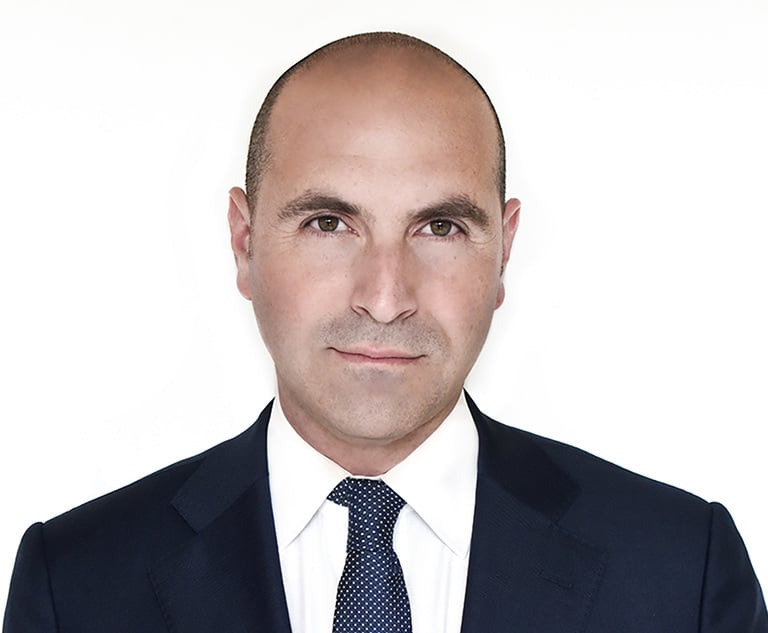
Growing Referral Network, Alternative Fees Have This Ex-Big Law’s Atty’s Bankruptcy Practice Soaring
5 minute read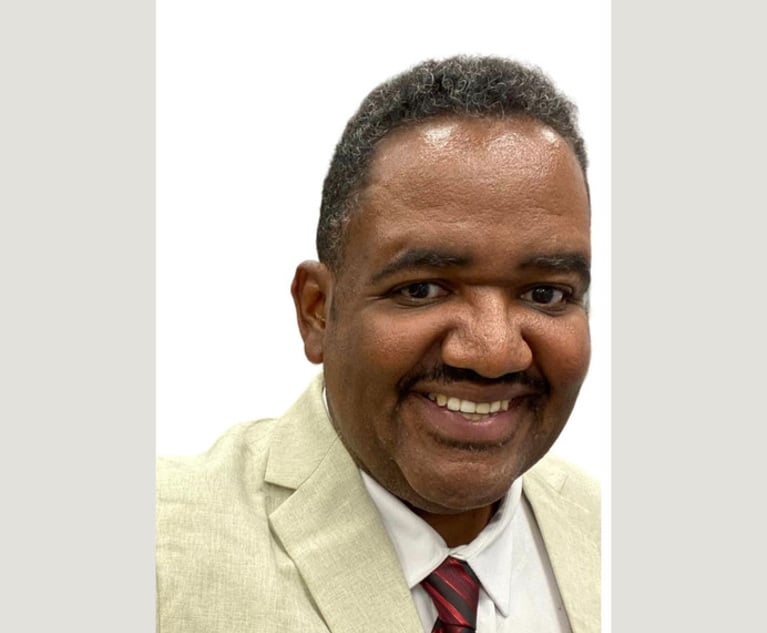
Against the Odds: Voters Elect Woody Clermont to the Broward Judicial Bench
4 minute read
Miami Civil Judge Myriam Lehr to Say Goodbye to the County Court Bench
4 minute readTrending Stories
- 1DC Lawsuits Seek to Prevent Mass Firings and Public Naming of FBI Agents
- 2Growth of California Firms Exceeded Expectations, Survey of Managing Partners Says
- 3Blank Rome Adds Life Sciences Trio From Reed Smith
- 4Divided State Supreme Court Clears the Way for Child Sexual Abuse Cases Against Church, Schools
- 5From Hospital Bed to Legal Insights: Lessons in Life, Law, and Lawyering
Who Got The Work
J. Brugh Lower of Gibbons has entered an appearance for industrial equipment supplier Devco Corporation in a pending trademark infringement lawsuit. The suit, accusing the defendant of selling knock-off Graco products, was filed Dec. 18 in New Jersey District Court by Rivkin Radler on behalf of Graco Inc. and Graco Minnesota. The case, assigned to U.S. District Judge Zahid N. Quraishi, is 3:24-cv-11294, Graco Inc. et al v. Devco Corporation.
Who Got The Work
Rebecca Maller-Stein and Kent A. Yalowitz of Arnold & Porter Kaye Scholer have entered their appearances for Hanaco Venture Capital and its executives, Lior Prosor and David Frankel, in a pending securities lawsuit. The action, filed on Dec. 24 in New York Southern District Court by Zell, Aron & Co. on behalf of Goldeneye Advisors, accuses the defendants of negligently and fraudulently managing the plaintiff's $1 million investment. The case, assigned to U.S. District Judge Vernon S. Broderick, is 1:24-cv-09918, Goldeneye Advisors, LLC v. Hanaco Venture Capital, Ltd. et al.
Who Got The Work
Attorneys from A&O Shearman has stepped in as defense counsel for Toronto-Dominion Bank and other defendants in a pending securities class action. The suit, filed Dec. 11 in New York Southern District Court by Bleichmar Fonti & Auld, accuses the defendants of concealing the bank's 'pervasive' deficiencies in regards to its compliance with the Bank Secrecy Act and the quality of its anti-money laundering controls. The case, assigned to U.S. District Judge Arun Subramanian, is 1:24-cv-09445, Gonzalez v. The Toronto-Dominion Bank et al.
Who Got The Work
Crown Castle International, a Pennsylvania company providing shared communications infrastructure, has turned to Luke D. Wolf of Gordon Rees Scully Mansukhani to fend off a pending breach-of-contract lawsuit. The court action, filed Nov. 25 in Michigan Eastern District Court by Hooper Hathaway PC on behalf of The Town Residences LLC, accuses Crown Castle of failing to transfer approximately $30,000 in utility payments from T-Mobile in breach of a roof-top lease and assignment agreement. The case, assigned to U.S. District Judge Susan K. Declercq, is 2:24-cv-13131, The Town Residences LLC v. T-Mobile US, Inc. et al.
Who Got The Work
Wilfred P. Coronato and Daniel M. Schwartz of McCarter & English have stepped in as defense counsel to Electrolux Home Products Inc. in a pending product liability lawsuit. The court action, filed Nov. 26 in New York Eastern District Court by Poulos Lopiccolo PC and Nagel Rice LLP on behalf of David Stern, alleges that the defendant's refrigerators’ drawers and shelving repeatedly break and fall apart within months after purchase. The case, assigned to U.S. District Judge Joan M. Azrack, is 2:24-cv-08204, Stern v. Electrolux Home Products, Inc.
Featured Firms
Law Offices of Gary Martin Hays & Associates, P.C.
(470) 294-1674
Law Offices of Mark E. Salomone
(857) 444-6468
Smith & Hassler
(713) 739-1250





